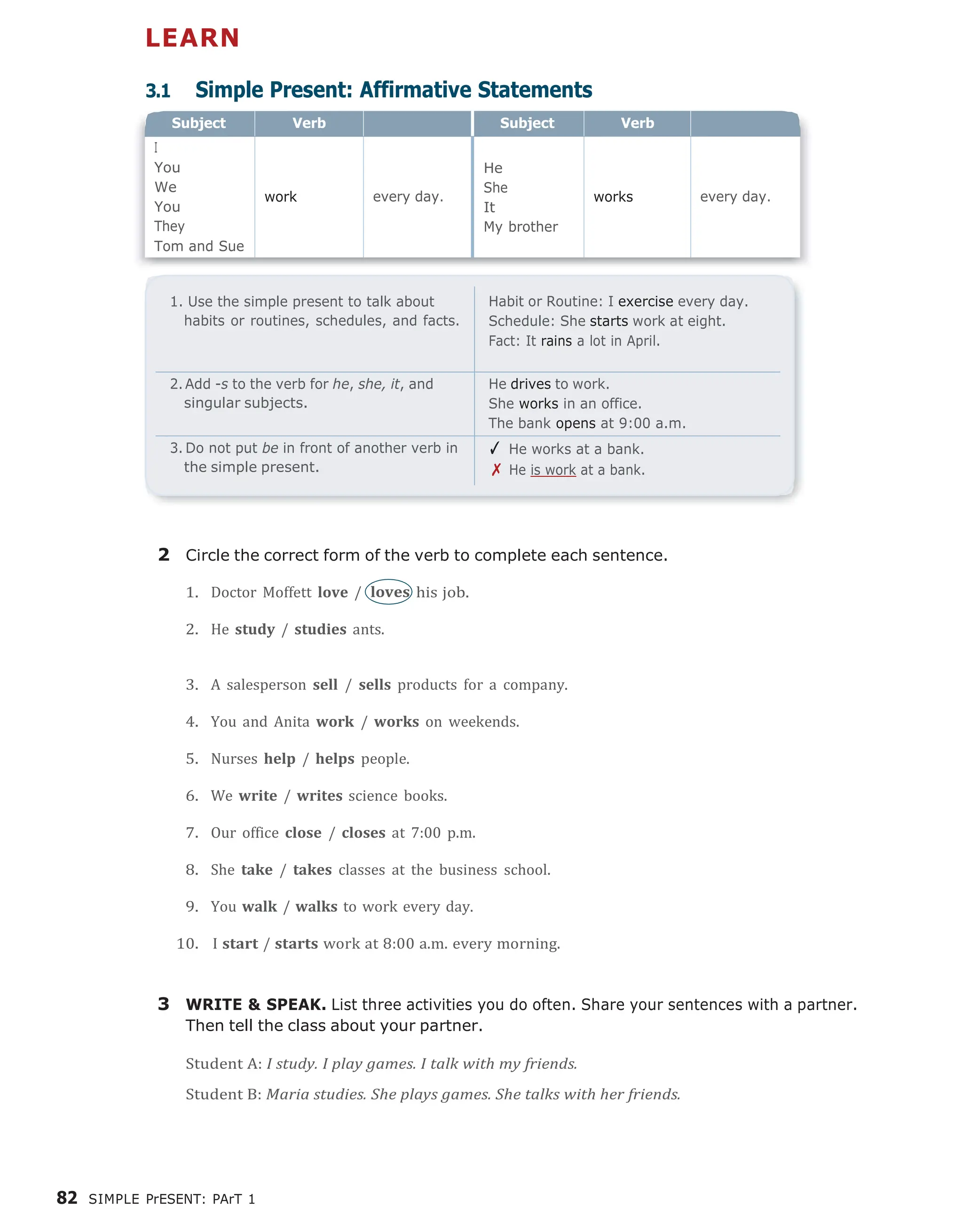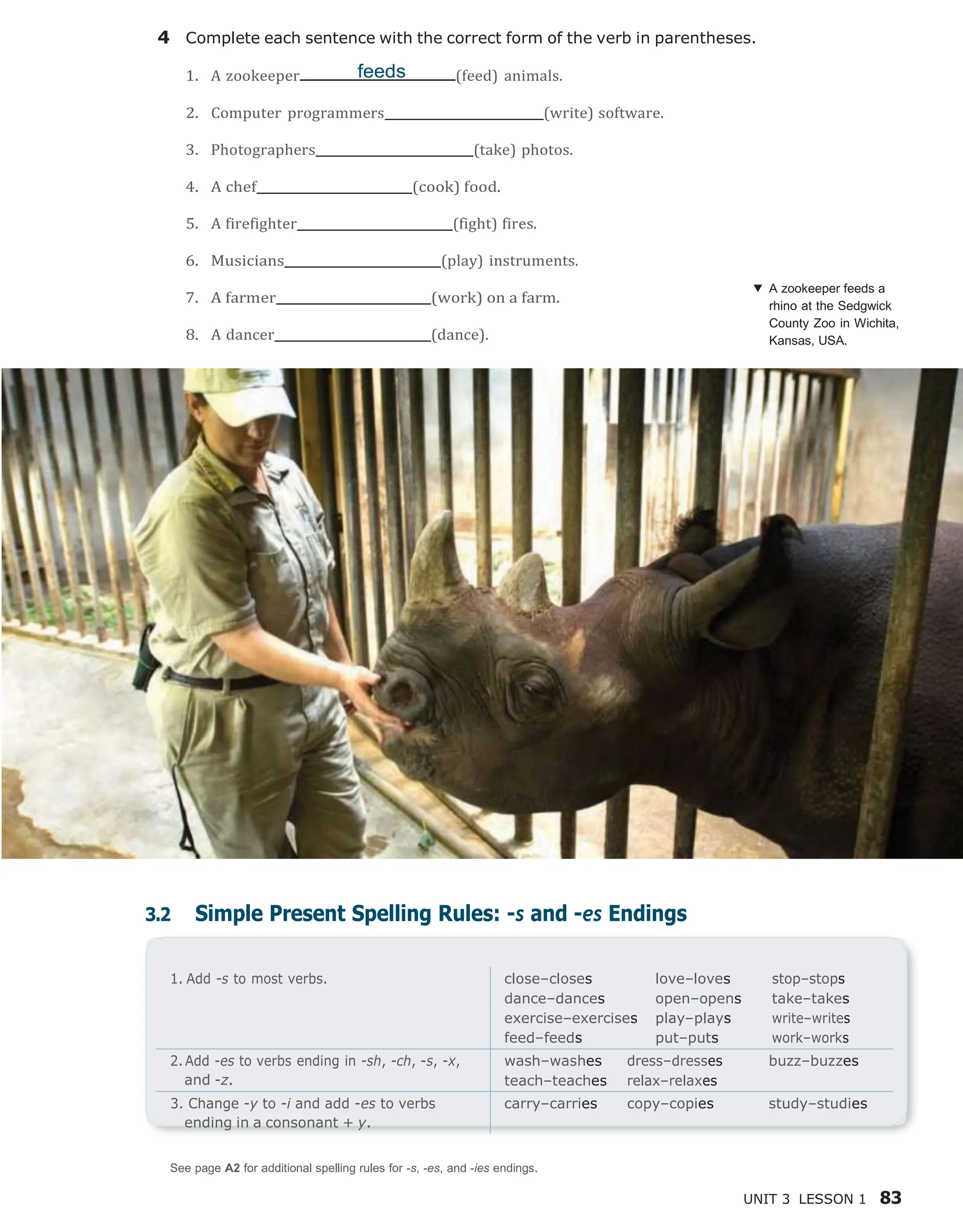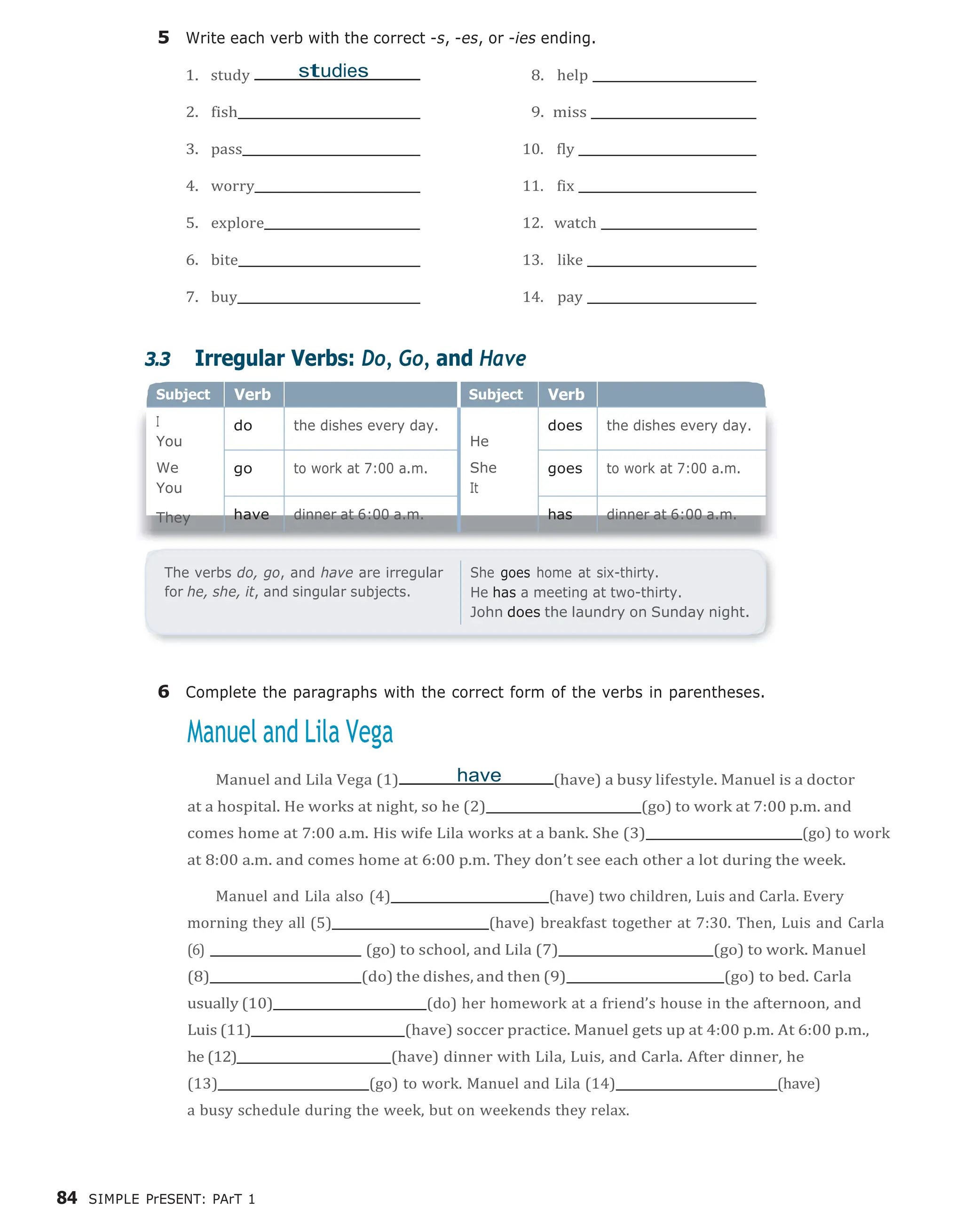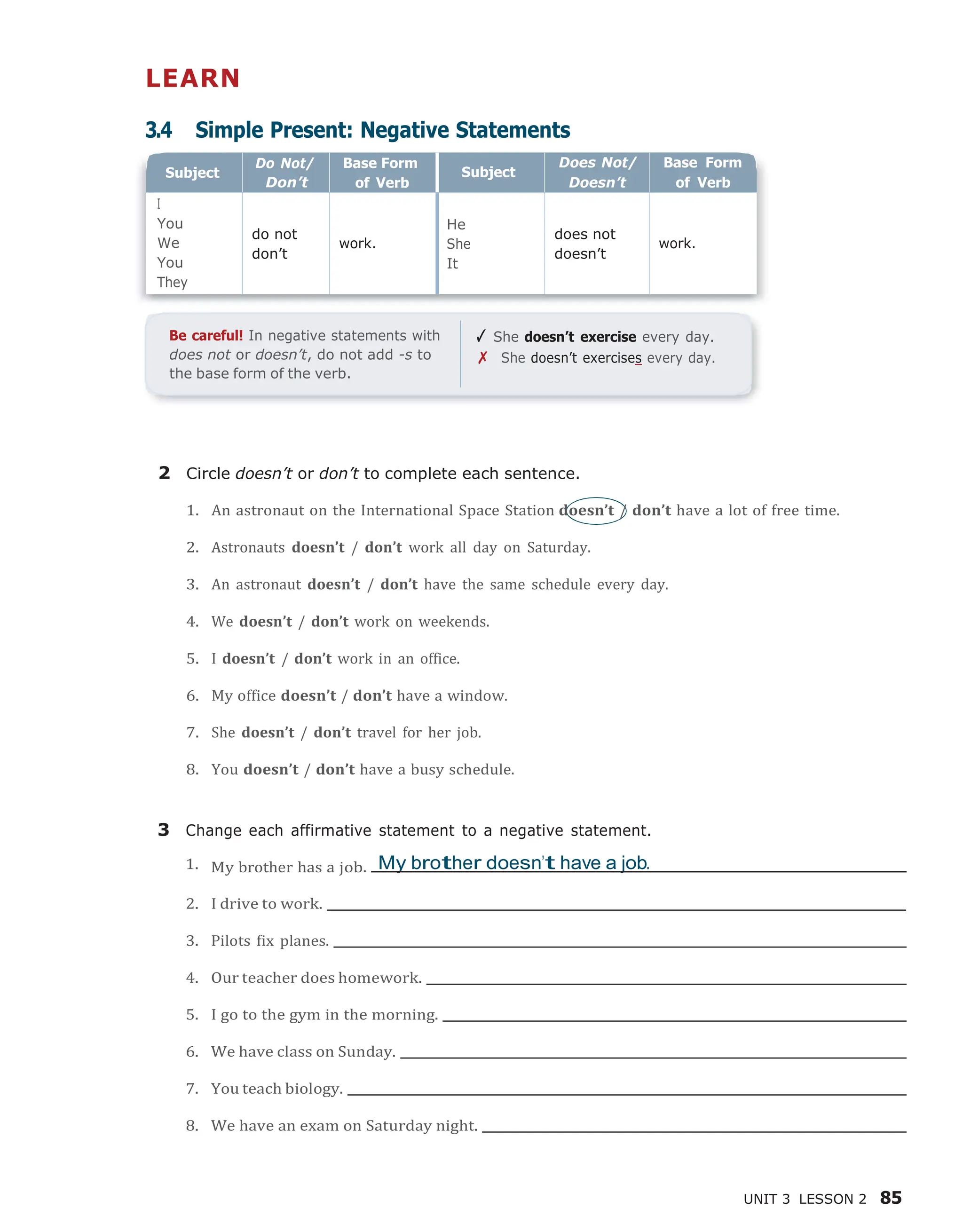This document provides information about simple present tense verbs. It discusses:
1. Using the simple present tense to talk about habits, routines, schedules, and facts. Regular verbs add -s in the third person singular.
2. Spelling rules for adding -s or -es to verbs in the simple present. Most verbs add -s, while some irregular verbs have other endings.
3. The irregular verbs do, go, and have in the simple present tense. They do not follow the typical pattern of adding -s in the third person singular.




